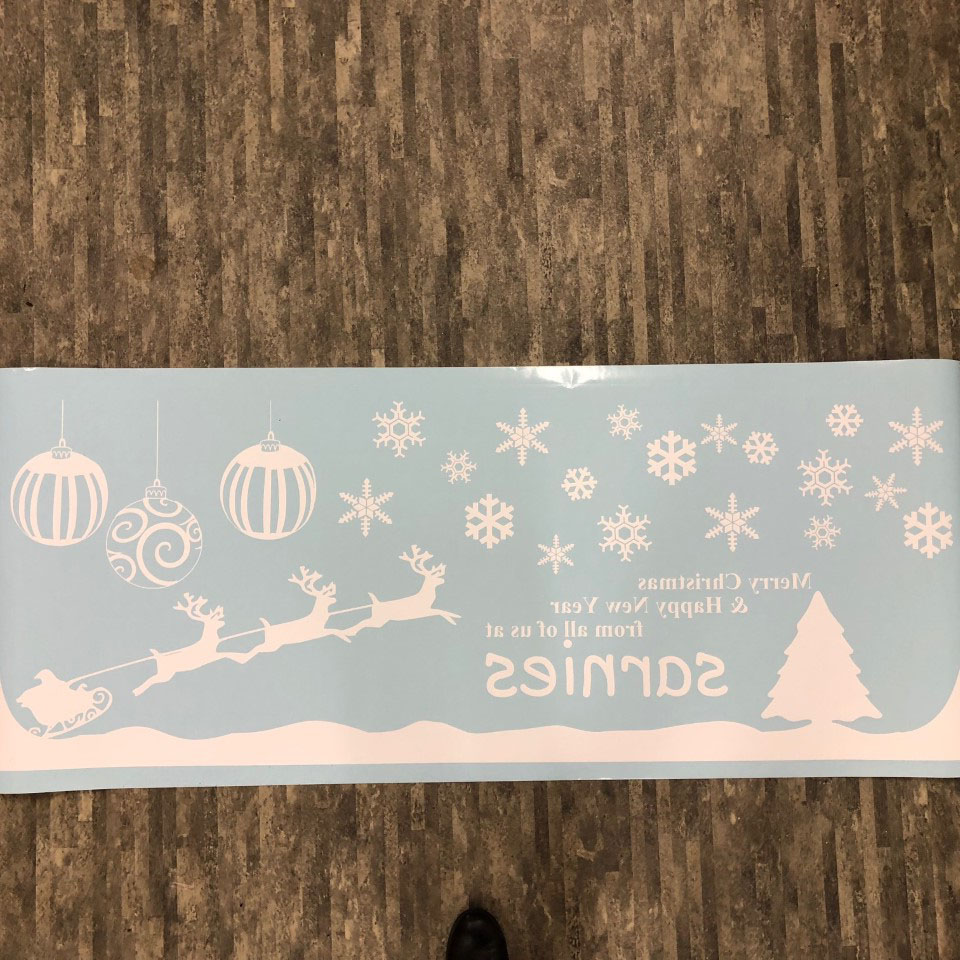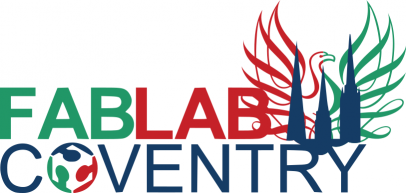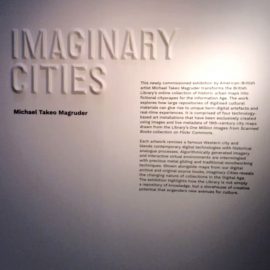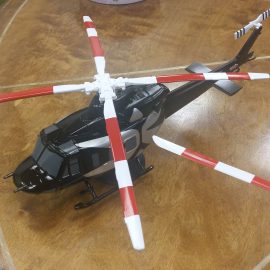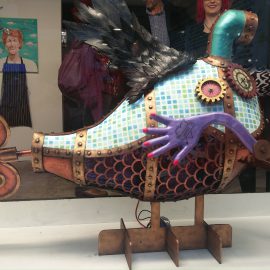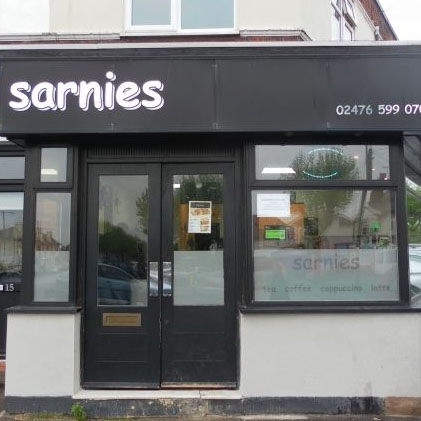
Overview
Sarnies, a local Coventry catering entity, was one of the first companies to engage with the Collaborate to Train (CTT) project. They had multiple project ideas, however were initially struggling to decide which project was most valuable to the company at that time. With it nearing the festive period, the business decided they wanted to create a festive display inside of the shop to help celebrate the period. FabLab’s Open College Network L1 and L2 alumnus, Ben took on the placement as a way to help build his personal portfolio, develop his skills further, help out a local business and gain valuable experience.
Commission
Sarnies approached Fab Lab to come up with a festive display to go in the shop. Due to the nature of the business being a catering establishment, after multiple discussions, it was decided upon that the best way to fabricate the design brief would be to create a vinyl display to be stuck to the windows for easy cleaning and hygiene purposes.
Ben, a young local individual, took the lead on this practical project; having already completed the digital fabrication course and gained an understanding of the technical elements required to create vinyl displays, Ben was able to put into practice his digital fabrication skills to support a local business, supported by Helen Lewis, FabLab Manager.
Process
Through extensive research of festive window displays, Sarnies approached us with the concept of creating something of a similar nature to go into their windows to represent the festive period. From this, Ben started off by developing a variety of design ideas which incorporated the requirements of the business, before finally settling on the final concept idea.
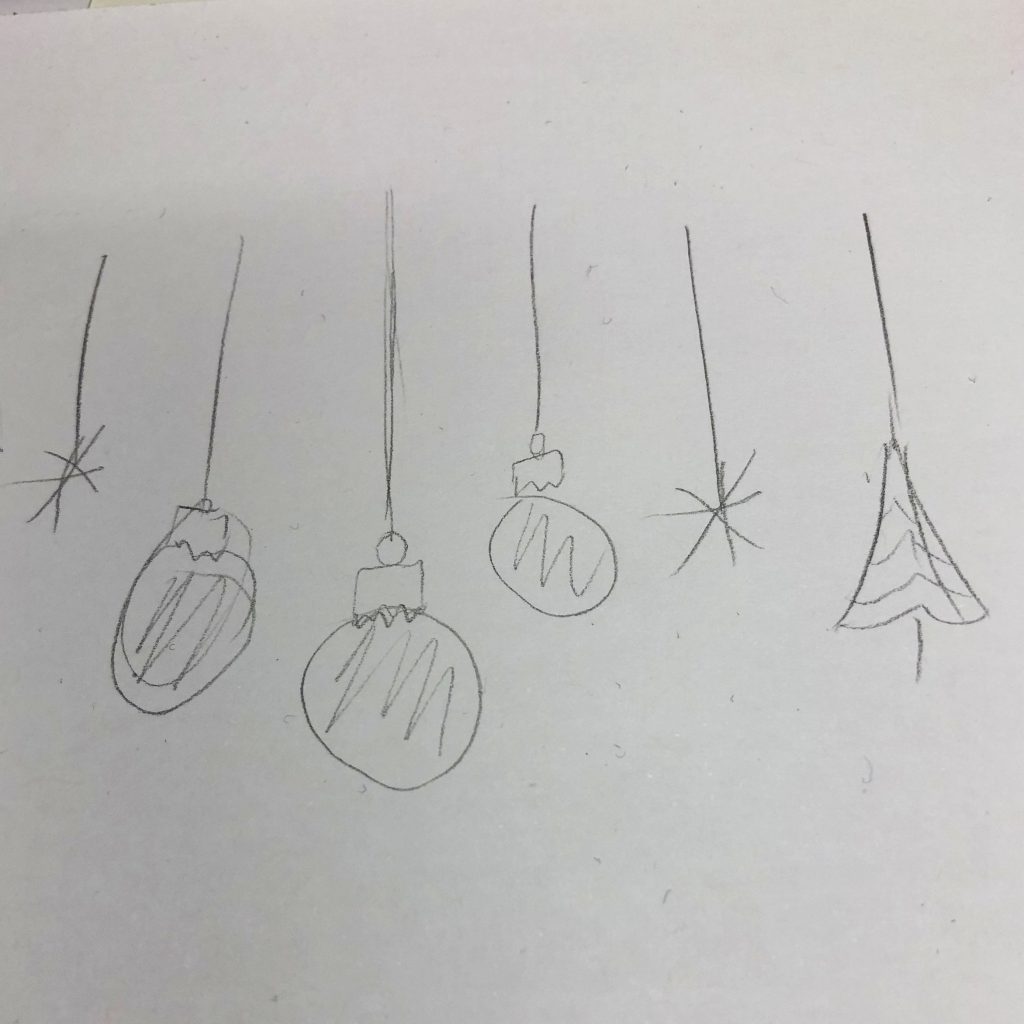
Once the ideas were in place, it was time to begin creating the CAD drawing of the final design idea. Using a combination of images from the internet as inspiration, Ben began to pull in multiple festive elements and draw them into one cohesive design, using his digital fabrication skills to edit and personalise the final design elements.
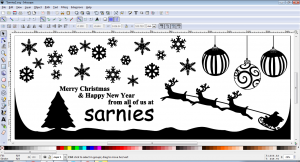
After agreement on the final design, the next step included the fabrication of the physical object. Before fabrication could take place, the entire design had to be reversed, to ensure all content could be read clearly from outside of the shop. Ben, further developing his digital fabrication skills, used the vinyl cutter to fabricate 4 identical adhesive vinyl decals and finish them appropriately through “weeding”, not an easy process with large, intricate, delicate designs such as this.
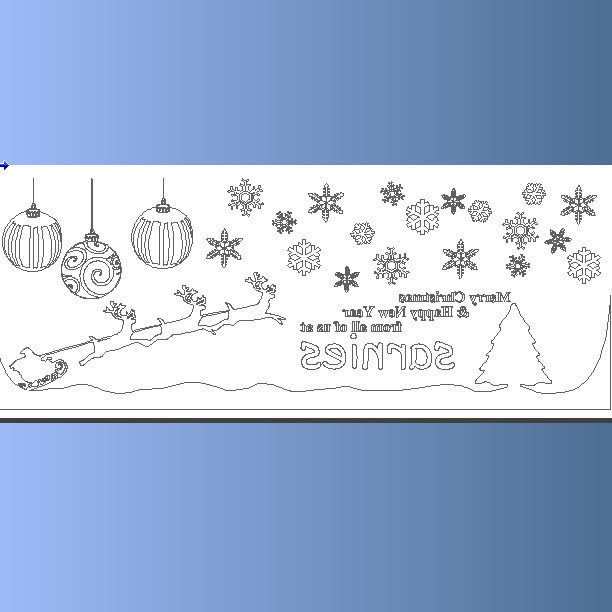
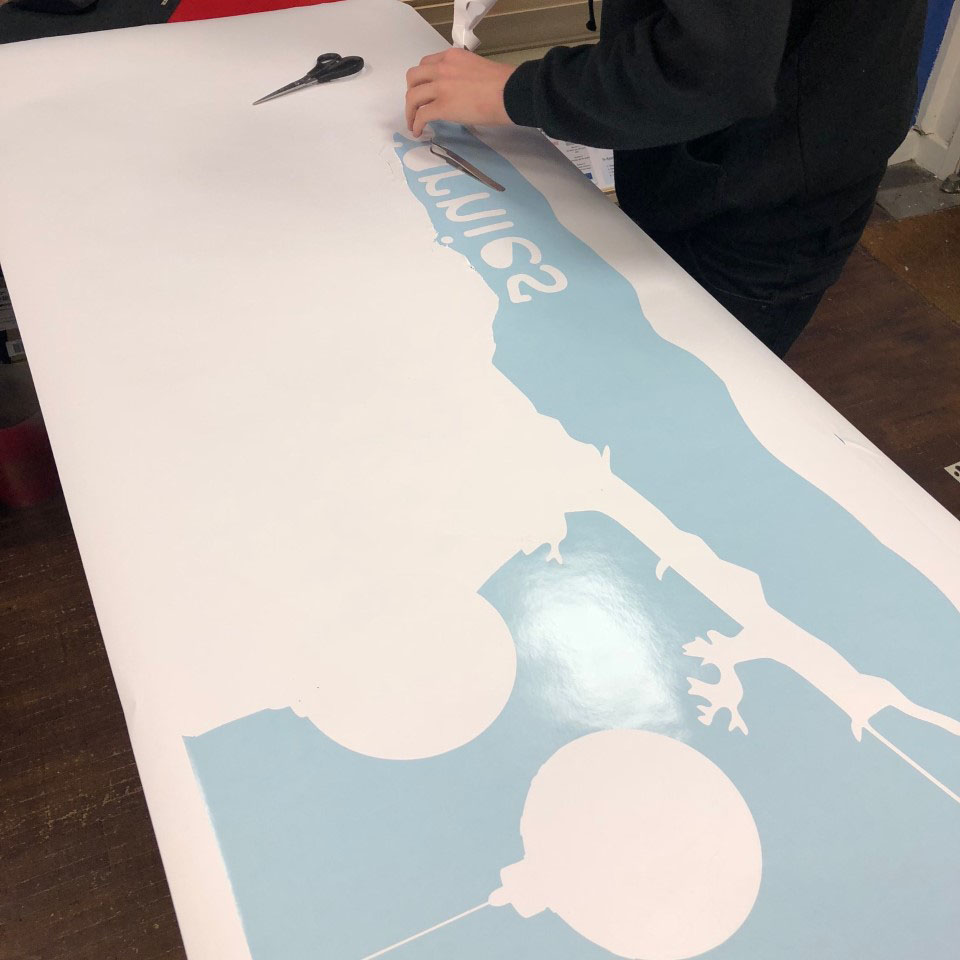
The CTT work placement had to be turned around in a very short space of time, due to the festive period rapidly approaching. Within just 3 days, the design was created, approved, fabricated and applied
Conclusion
Although FabLab Coventry run Digital Fabrication courses on a regular basis for local people to gain 2D vector drawing design skills and qualifications, this project developed these skills further mainly through the scale and scope of the project. Through the CTT programme, this enabled us to enhance Ben’s digital fabrication skills by giving him practical, work experience putting these skills into practice.
This Collaborate to Train project proved highly successful on a number of grounds:
- The business gained a personalised design of high quality, relevant to the design brief and all within a very short turn around production time.
- The placement gained valuable experience in design and fabrication techniques.
- The project fell nicely into further developing local communities to acquire skills and strength civic contribution
